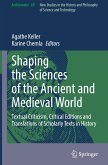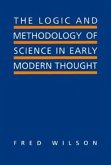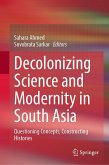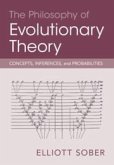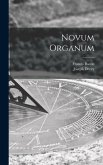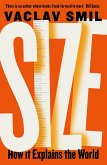Science and the Shaping of Modernity
Essays in Honor of Stephen Gaukroger
Herausgegeben:Wolfe, Charles; Waldow, Anik
Science and the Shaping of Modernity
Essays in Honor of Stephen Gaukroger
Herausgegeben:Wolfe, Charles; Waldow, Anik
- Gebundenes Buch
- Merkliste
- Auf die Merkliste
- Bewerten Bewerten
- Teilen
- Produkt teilen
- Produkterinnerung
- Produkterinnerung
This book collects a variety of short essays on Stephen Gaukroger's thought, by leading scholars, both senior and junior. Stephen Gaukroger (1950-2023) was one of the preeminent specialists of early modern science and philosophy, particularly their interrelations including under the heading 'natural philosophy', on the international scene, since the 1980s, starting with his prominent Cartesian scholarship (and biography) and moving towards the formidable 4-volume series on science and the shaping of modernity (from Emergence of a Scientific Culture to Civilization and the Culture of Science),…mehr
Andere Kunden interessierten sich auch für
![Shaping the Sciences of the Ancient and Medieval World Shaping the Sciences of the Ancient and Medieval World]() Shaping the Sciences of the Ancient and Medieval World100,99 €
Shaping the Sciences of the Ancient and Medieval World100,99 €![The Logic and Methodology of Science in Early Modern Thought The Logic and Methodology of Science in Early Modern Thought]() Fred WilsonThe Logic and Methodology of Science in Early Modern Thought125,99 €
Fred WilsonThe Logic and Methodology of Science in Early Modern Thought125,99 €![Kuhn's The Structure of Scientific Revolutions at 60 Kuhn's The Structure of Scientific Revolutions at 60]() Kuhn's The Structure of Scientific Revolutions at 60126,99 €
Kuhn's The Structure of Scientific Revolutions at 60126,99 €![Decolonizing Science and Modernity in South Asia Decolonizing Science and Modernity in South Asia]() Decolonizing Science and Modernity in South Asia97,99 €
Decolonizing Science and Modernity in South Asia97,99 €![The Philosophy of Evolutionary Theory The Philosophy of Evolutionary Theory]() Elliott SoberThe Philosophy of Evolutionary Theory89,99 €
Elliott SoberThe Philosophy of Evolutionary Theory89,99 €![Novum Organum Novum Organum]() Francis BaconNovum Organum38,99 €
Francis BaconNovum Organum38,99 €![Size Size]() Vaclav SmilSize14,99 €
Vaclav SmilSize14,99 €-
-
-
This book collects a variety of short essays on Stephen Gaukroger's thought, by leading scholars, both senior and junior. Stephen Gaukroger (1950-2023) was one of the preeminent specialists of early modern science and philosophy, particularly their interrelations including under the heading 'natural philosophy', on the international scene, since the 1980s, starting with his prominent Cartesian scholarship (and biography) and moving towards the formidable 4-volume series on science and the shaping of modernity (from Emergence of a Scientific Culture to Civilization and the Culture of Science), dealing not just with early modernity but with the Enlightenment, German Romanticism and 20th-century society. This volume covers the thought of this highly-recognized scholar and engages with his works covering early modern philosophy, enlightenment, and contemporary periods, making it a must-read for any philosopher and historian of science.
Produktdetails
- Produktdetails
- Studies in History and Philosophy of Science 62
- Verlag: Springer / Springer Nature Switzerland / Springer, Berlin
- Artikelnr. des Verlages: 978-3-031-76036-5
- Seitenzahl: 372
- Erscheinungstermin: 24. Dezember 2024
- Englisch
- Abmessung: 241mm x 160mm x 26mm
- Gewicht: 669g
- ISBN-13: 9783031760365
- ISBN-10: 3031760360
- Artikelnr.: 71748155
- Herstellerkennzeichnung Die Herstellerinformationen sind derzeit nicht verfügbar.
- Studies in History and Philosophy of Science 62
- Verlag: Springer / Springer Nature Switzerland / Springer, Berlin
- Artikelnr. des Verlages: 978-3-031-76036-5
- Seitenzahl: 372
- Erscheinungstermin: 24. Dezember 2024
- Englisch
- Abmessung: 241mm x 160mm x 26mm
- Gewicht: 669g
- ISBN-13: 9783031760365
- ISBN-10: 3031760360
- Artikelnr.: 71748155
- Herstellerkennzeichnung Die Herstellerinformationen sind derzeit nicht verfügbar.
Charles T. Wolfe is Professor of Modern and Contemporary Philosophy at the Université de Toulouse-2 Jean-Jaurès. He is the author of Materialism: A Historico-Philosophical Introduction (2016), La philosophie de la biologie avant la biologie: une histoire du vitalisme (2019) and Lire le matérialisme (2020), and has edited or coedited volumes on empiricism, mechanism and vitalism, Locke and Canguilhem, monsters, brains and biology. Anik Waldow is Professor of Philosophy at the University of Sydney and Fellow of the Australian Academy of the Humanities. She is the author of Hume and the Problem of Other Minds (2009) and Experience Embodied: Early Modern Accounts of the Human Place in Nature (2020) and has edited several volumes, including Sensibility in the Early Modern Era: From Living Machines to Affective Morality (2016) and Herder: Philosophy and Anthropology (with N. DeSouza, 2017).
Chapter 1. Introduction.- Chapter 2. Descartes after Gaukroger.- Chapter 3. Abiding, Fruitful (and Never 'Vehement'): Forty Years of Historiographical Dialogue with Steve Gaukroger.- Chapter 4. In Praise of an Independent Thinker - Stephen Gaukroger's Methods, Concepts, and Command of Languages.- Chapter 5. Remarks on Philosophy and Friendship.- Chapter 6. Optimism.- Chapter 7. Gaukroger autonomy of phenomenal explanation.- Chapter 8. Religion and the Social Legitimation of Science.- Chapter 9. Science and Scepticism: Navigating Knowledge, Belief, and Faith.- Chapter 10. Some Reflections on Gaukroger's Descartes.- Chapter 11. Debt to Bacon: On Communicating Knowledge and Ignorance in the Discourse on the Method.- Chapter 12. Gaukroger's Descartes' System of Natural Philosophy: A few Dilemmas of Descartes's Physics.- Chapter 13. Peering horizontally through microscopes: Stephen Gaukroger explains the middling world.- Chapter 14. Nero's Ingratitude: Spinoza and the Naturalisation of Sin.- Chapter 15. The Great Spinoza Controversy of the 1780s: the Role of Frans Hemsterhuis (1721-1790).- Chapter 16. The Philosophical Personae of Joseph Weber (1753-1831): Catholic Philosopher-Priest at the University of Dillingen.- Chapter 17. The History of the Humanities and the History of Science in the Early Natural History of the Kangaroo.- Chapter 18. The Life-Made World of Jean-Baptiste Lamarck.- Chapter 19. Romanticism and Empiricism - or Romantic Empiricism.- Chapter 20. Georg Forster and Therese Huber's Adventure to New Holland.- Chapter 21. Sense, Sensibility, Sensitivity, or, Why was the 18th Century more Sentimental than the 17th Century?.- Chapter 22. A physiology of resurrection? Bonnet as reader of Malebranche.- Chapter 23. Mandeville on Medical Men.- Chapter 24. The Genre Of the Natural History Of Man Through Stephen Gaukroger's Lens. Intellectual Sentiments Within Stadial History: Giambattista Vico, The Encyclopédie, Adam Smith.- Chapter 25. Humean Chemistry: Chemical Philosophy and Philosophical Chemistry in David Hume and William Cullen.- Chapter 26. Where's Lucian? Failure and historical compromise in the History of Philosophy.- Chapter 27. Steven Gaukroger on philosophical failure.- Chapter 28. What Kind of Philosophy Might Survive the History of Its Failures? Gadamerian Reflections on Stephen Gaukroger's The Failures of Philosophy.- Chapter 29. On the New Nature and the Impact of Synthetic Philosophy on Cosmogenic Speculation.- Chapter 30. A Naturalist Philosopher.- Chapter 31. Stephen Gaukroger and the neutrality of historical epistemology.- Chapter 32. Geopraxis and Historical Materialism. For a Humanistic Environmentalism.- Chapter 33. The Mentor and Educator in the Persona of the Scholar.- Chapter 34. What I learned from Stephen.- Chapter 35. Orientation in Space, Thought and Life. Continuing some recent conversations with Stephen.- Chapter 36. A bibliography of Stephen Gaukroger's publications.
Chapter 1. Introduction.- Chapter 2. Descartes after Gaukroger.- Chapter 3. Abiding, Fruitful (and Never 'Vehement'): Forty Years of Historiographical Dialogue with Steve Gaukroger.- Chapter 4. In Praise of an Independent Thinker - Stephen Gaukroger's Methods, Concepts, and Command of Languages.- Chapter 5. Remarks on Philosophy and Friendship.- Chapter 6. Optimism.- Chapter 7. Gaukroger autonomy of phenomenal explanation.- Chapter 8. Religion and the Social Legitimation of Science.- Chapter 9. Science and Scepticism: Navigating Knowledge, Belief, and Faith.- Chapter 10. Some Reflections on Gaukroger's Descartes.- Chapter 11. Debt to Bacon: On Communicating Knowledge and Ignorance in the Discourse on the Method.- Chapter 12. Gaukroger's Descartes' System of Natural Philosophy: A few Dilemmas of Descartes's Physics.- Chapter 13. Peering horizontally through microscopes: Stephen Gaukroger explains the middling world.- Chapter 14. Nero's Ingratitude: Spinoza and the Naturalisation of Sin.- Chapter 15. The Great Spinoza Controversy of the 1780s: the Role of Frans Hemsterhuis (1721-1790).- Chapter 16. The Philosophical Personae of Joseph Weber (1753-1831): Catholic Philosopher-Priest at the University of Dillingen.- Chapter 17. The History of the Humanities and the History of Science in the Early Natural History of the Kangaroo.- Chapter 18. The Life-Made World of Jean-Baptiste Lamarck.- Chapter 19. Romanticism and Empiricism - or Romantic Empiricism.- Chapter 20. Georg Forster and Therese Huber's Adventure to New Holland.- Chapter 21. Sense, Sensibility, Sensitivity, or, Why was the 18th Century more Sentimental than the 17th Century?.- Chapter 22. A physiology of resurrection? Bonnet as reader of Malebranche.- Chapter 23. Mandeville on Medical Men.- Chapter 24. The Genre Of the Natural History Of Man Through Stephen Gaukroger's Lens. Intellectual Sentiments Within Stadial History: Giambattista Vico, The Encyclopédie, Adam Smith.- Chapter 25. Humean Chemistry: Chemical Philosophy and Philosophical Chemistry in David Hume and William Cullen.- Chapter 26. Where's Lucian? Failure and historical compromise in the History of Philosophy.- Chapter 27. Steven Gaukroger on philosophical failure.- Chapter 28. What Kind of Philosophy Might Survive the History of Its Failures? Gadamerian Reflections on Stephen Gaukroger's The Failures of Philosophy.- Chapter 29. On the New Nature and the Impact of Synthetic Philosophy on Cosmogenic Speculation.- Chapter 30. A Naturalist Philosopher.- Chapter 31. Stephen Gaukroger and the neutrality of historical epistemology.- Chapter 32. Geopraxis and Historical Materialism. For a Humanistic Environmentalism.- Chapter 33. The Mentor and Educator in the Persona of the Scholar.- Chapter 34. What I learned from Stephen.- Chapter 35. Orientation in Space, Thought and Life. Continuing some recent conversations with Stephen.- Chapter 36. A bibliography of Stephen Gaukroger's publications.


